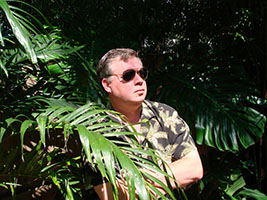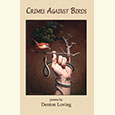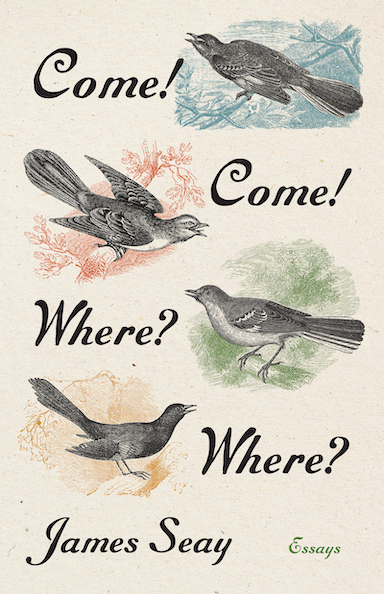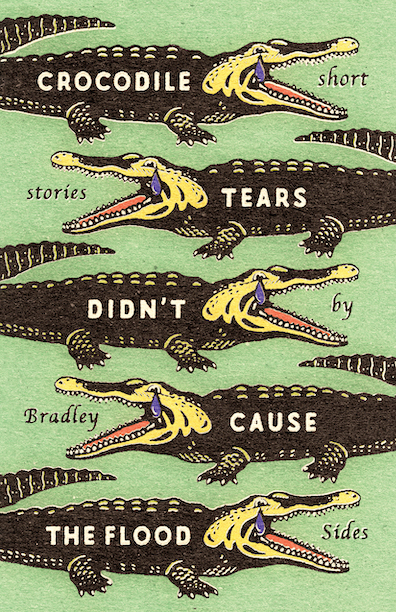Going Gonzo
Tim Dorsey takes wacky crime on the road in Coconut Cowboy, his latest Serge A. Storms novel
Tim Dorsey’s Coconut Cowboy is the nineteenth installment in a gonzo series that seems as indestructible as its history-loving and occasionally psychotic protagonist, Serge A. Storms. Hitting the road and modeling his journey through Florida after the 1969 film Easy Rider, Storms and his substance-abusing sidekick, Coleman, bike the state’s blue highways on a vintage chopper (with sidecar) in search of “the American Dream.” This is, of course, the same American Dream that Hunter S. Thompson and his substance-abusing sidekick crossed the desert to find in the 1971 masterpiece, Fear and Loathing in Las Vegas.
As in the book that first coined the term “gonzo journalism,” Dorsey’s fiction delivers moral messages and astute cultural observations amid hilarious bouts of really bad behavior. Storms lays out his purpose to Coleman early in the book:
“The American Dream! That’s my new mission: to find out where it went.” Serge grabbed a travel mug of coffee. “When I was growing up in a small town in the sixties, the American Dream was all around. Back then, if you worked hard and followed the rules under the Declaration of Independence, you got to pursue happiness on the weekend with a Barcalounger and a hibachi. The mood of the middle class came down to one word. Relaxed.
“And today?”
“You do everything right and you’re rewarded with a weekend of dread: Will I get a pay cut? Will I get laid off? What if I get sick? Are we all destined to work part-time? How will my kids be better off than me? Which other Americans did that radio host say I should hate about this?
With helmet radios blaring classic rock, the duo sets out through the small towns of Florida’s panhandle, where they encounter vestiges of the middle class, third-generation hippies, and—this being a Dorsey book—episodes of comically excessive violence. One sort of violence common to the series arises from the fact that Storms has no tolerance for a certain male stereotype. Thus, when a young man in a large pick-up truck with incredibly loud speakers commits an act of road rage, he provides Storms with more than one motivation for delivering punishment. Another man who sells fetish videos depicting harm to small animals is certain to suffer the same sort of fate at the feet of a much larger animal.
 The other sort of violence in the book is perpetrated not by Storms but by various residents of a wholly corrupt and fictional central Florida town called Wobbly. In chapters that alternate with depictions of the slow motorcycle tour, it becomes increasingly clear that the town’s corrupt but inept politicians, an angry drug lord, a growing sinkhole, and Serge A. Storms will all collide in the book’s climax.
The other sort of violence in the book is perpetrated not by Storms but by various residents of a wholly corrupt and fictional central Florida town called Wobbly. In chapters that alternate with depictions of the slow motorcycle tour, it becomes increasingly clear that the town’s corrupt but inept politicians, an angry drug lord, a growing sinkhole, and Serge A. Storms will all collide in the book’s climax.
Dorsey began his career as a journalist and spent more than a decade at the The Tampa Tribune. He travels extensively through Florida and has even published a travel companion to his novels. Thus bizarre behavior by Storms is often tied to an even more bizarre—but true—Florida story, and part of the appeal of Storm’s brand of vigilantism is that it is modeled on odd, carefully researched facts. In Coconut Cowboy, there are factual accounts of Lu the hippo, a fifty-six-year-old animal TV star of the 1960s; of “Walking” Lawton Chiles, who traversed the state on foot before serving multiple terms as U.S. Senator and governor; and of two short-lived independent nations, Florida in 1821 and the Conch Republic in 1982.
Except for the bloodier bits, Storms chronicles his route through the state on a blog, which happens to be followed by a Princeton doctoral candidate named Matt, who is in search of a dissertation topic. “Once you really unpack the site, it’s crammed full of academic data and cultural treatises that most tenured professors would envy,” Matt explains to his friends. “I believe he’s deliberately appearing wacky in order to make dry history more entertaining and digestible.” Calling Florida “the nation’s pace car of dysfunction,” Matt vows to track down Storms: “My thesis will postulate that all this bizarre behavior is the spear tip of coming effects from the national sea change.” He is soon on a collision course with Serge and the town of Wobbly.
Like meth in Florida or human adrenal glands in Las Vegas, Tim Dorsey novels might not be the sort of habit you should admit to your Princeton-educated friends—but they can lead to godlike moments of gonzo revelation and more than a few belly laughs.

Michael Ray Taylor teaches journalism at Henderson State University in Arkadelphia, Arkansas. He is the author of several books of nonfiction and a recent textbook, Creating Comics as Journalism, Memoir and Nonfiction.


